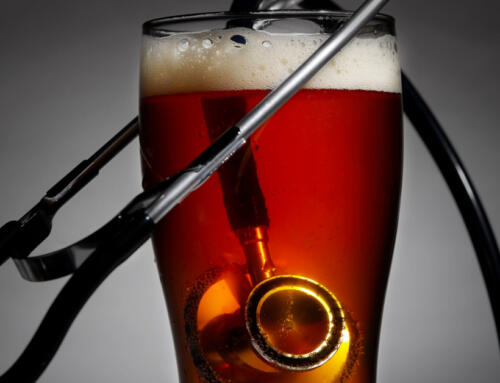As a DUI defense attorney in Philadelphia, I run into situations where a client’s medications or medical conditions can impact the results of a breath test. In this article, I’ll describe some of the medications and conditions that can throw off breath test results in DUI cases.
Breath Testing in Pennsylvania DUI Cases
If you are stopped for suspicion of operating a vehicle under the influence of alcohol, the State of Pennsylvania requires that you submit to a blood, breath, or urine test if requested by the police. By accepting a driver’s license in Pennsylvania you are giving consent to the police to conduct this test during a DUI stop. If the test indicates that you have alcohol in your system, the police have the right to use this evidence to arrest you for operating a vehicle under the influence. This evidence will then be presented in court to be used as evidence against you. If convicted, you will face large fines, loss of your driving privileges and a possible jail sentence.
It is very important for everyone to understand that breath tests can be wrong. There are many different types of medications and medical conditions that can negatively affect one of these tests and lead to a false positive. If you use any of the following medications or suffer from any of the following medical conditions, your breathalyzer test could be wrong:
Asthma Medicines Can Impact a DUI Breath Test
Because asthma medications are inhaled, they stay in the air passageways longer than other types of medications. Scientists have shown that Albuterol, Salmeterol, and Budesonide can all cause a breathalyzer test to register alcohol use.
Over The Counter (OTC) Medications Can Impact a DUI Breath Test
Medications that are alcohol based, such as Nyquil or Vicks products, can cause a higher reading on the breath test. Additionally, some cough syrups can cause higher readings, even if they are labeled as alcohol-free.
Oral Pain Relievers, Mouth Washes, and Breath Sprays Can Impact a DUI Breath Test
Oral pain relievers, such as Ora-gel used to treat toothaches and mouth sores is an alcohol based product and will raise blood alcohol readings because they stay concentrated in the mouth. Some of the antiseptic mouthwashes and breath sprays will affect these tests in the same manner.
Gastro Disorders (GERD) Can Impact a DUI Breath Test
People who suffer from acid reflux or GERD will always test higher on a blood-alcohol breath test than those who do not suffer from this condition. The acid built up in the stomach often rests in the esophagus where the fumes from the acid build-up. This enters into the deep breath used for the breathalyzer test.
Dental Work Can Impact a DUI Breath Test
If you have had dental work performed on the same day that you are pulled over for DUI, your test may register higher than what it actually should. The cleaners, antiseptic, and other medications used by the dentist are almost always alcohol-based because this is the most effective germ killer for the mouth area. This will cause a higher test reading, especially if you still have gauze packed in your mouth.
High Ketone Levels Can Impact a DUI Breath Test
Ketones are a natural acid that occurs in the body when you are suffering from diabetes or you are aggressively trying to lose weight. If you have a high concentration of ketones in your system, your test will register much higher than it should.
Exposure to Fumes Can Impact a DUI Breath Test
While this does not happen very often, it still can skew the results of a breathalyzer test. People that work in a closed area with paints, varnishes, or other alcohol-based substances and breathe in these fumes for extended periods of time can register higher on a breath test.
Because there are so many scenarios that can cause a breathalyzer test to register inaccurate readings, it is important for anyone being charged with DUI to seek legal advice from a DUI lawyer to talk about their case. Contact me; I may be able to show how the test was inaccurate which would be very beneficial to the outcome of your case.






